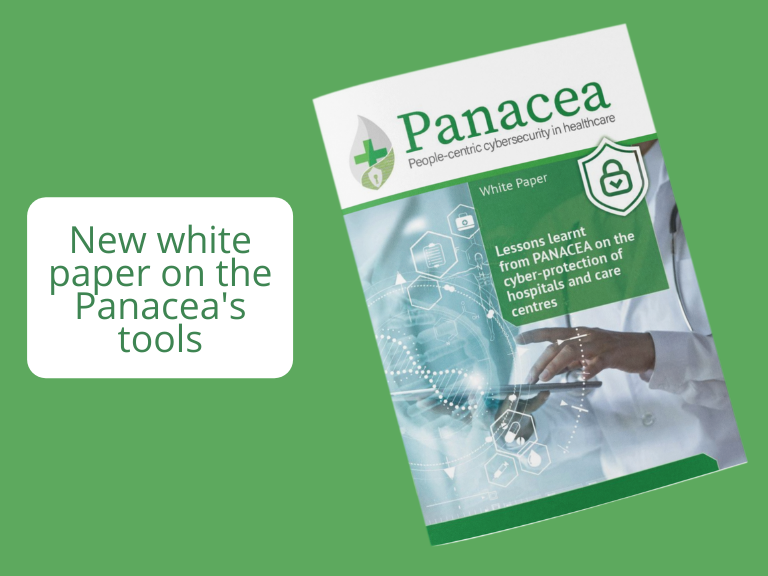Lessons learnt from PANACEA on the cyber-protection of hospitals and care centres

Background
Cybersecurity in Healthcare Organisations is a complex issue, due to the convergence of many structural and regulatory challenges. The attack surface is wide and dynamic because of the multiplicity of connected endpoints, increasing digitalisation, many non-secure legacy medical devices and increasing levels of inter-organisational data sharing. With the advent of COVID-19, cybersecurity has amplified and made manifest risky situations for healthcare organisations (such as smart-working and telemedicine). What's more, in the healthcare sector, more than any other industry, cyber-attacks have strong repercussions on both financial and social aspects, as they also impact patients’ data privacy, their safety and quality of care. Cybersecurity is thus an essential part of a high-quality healthcare service and not an obstacle limiting the performance of healthcare operations.
The Panacea Toolkit: a holistic approach to overcome cyberattacks in hospital organisations
To overcome cybersecurity challenges, PANACEA offers a portfolio of Tools and expertise that combines technological, risk governance measures and human behavioural aspects into an integrated solution. The holistic and customisable approach adopted includes tools for:
- Automatic, dynamic and multi-dimensional risk assessment.
- Secure by design deployment of medical devices systems.
- Easy and manageable information sharing.
- User-friendly clinical staff identity management.
- Security behaviour assessment with ways to improve it through nudges.
- Education video-clips to influence correct behaviours.
- Distributed governance implementation.
Validation with three European Healthcare Organisations (HSOs) and four medical device/system developers has shown the usability and the added value brought by the PANACEA Toolkit as an integrated solution to build cybersecurity capability and resilience. It offers healthcare organisations a strong and unique portfolio of solutions and expertise, tailored to cope with very specific challenges in healthcare.
The PANACEA white paper: lessons learnt on the cyber-protection of hospitals and care centres
PANACEA has published a white paper to present the benefits brought by its Toolkit.
In this white paper you can find:
- An overview of the cybersecurity challenges in healthcare and impacts of cyber-attacks.
- A walkthrough the PANACEA Solution Toolkit.
- The case study on the HSE Ransomware Attack and how the PANACEA Toolkit could have helped avoid the attack and support the recovery process.
- An overview of how to adopt the PANACEA Toolkit.
If you would like to learn more about PANACEA and how it can help hospitals in building cyber resilience, download a free copy of our white paper.
Download the white paper
